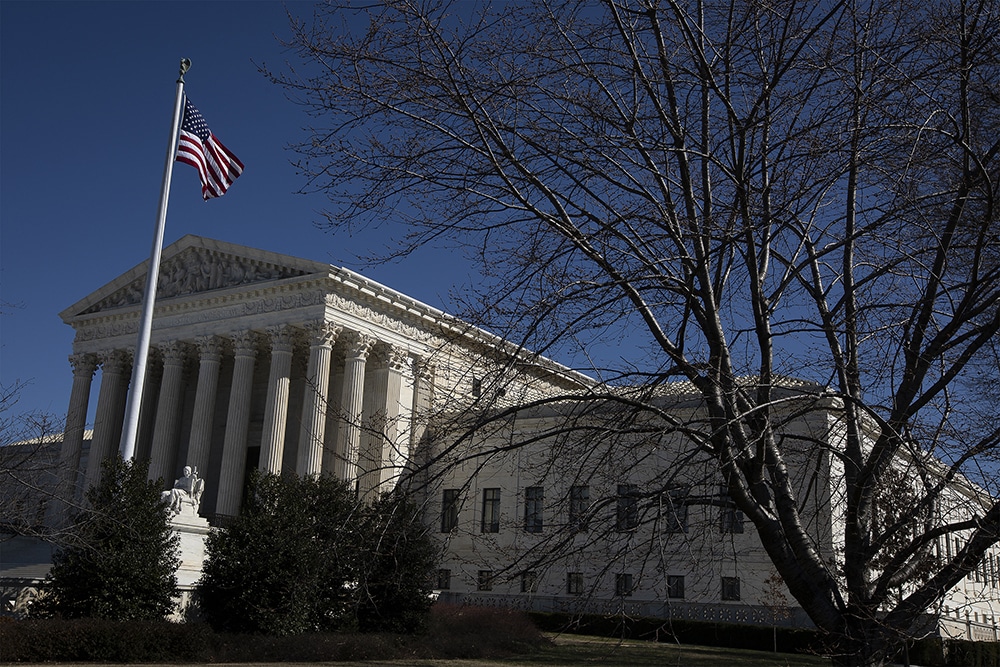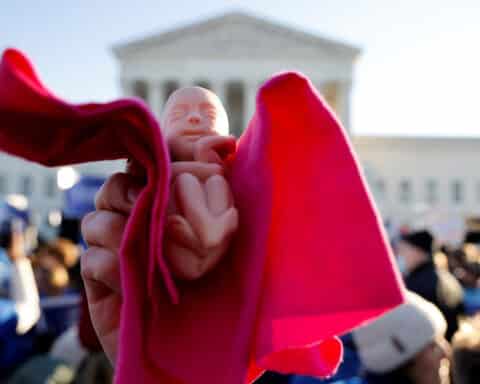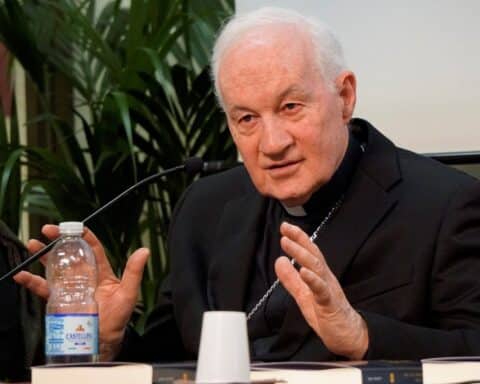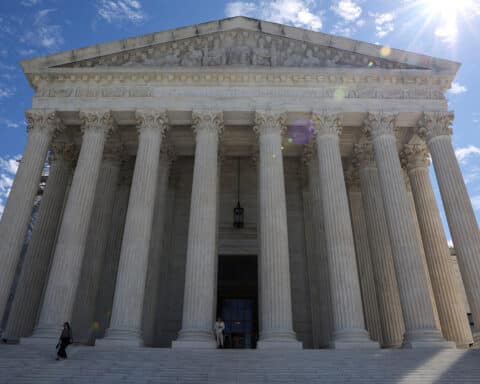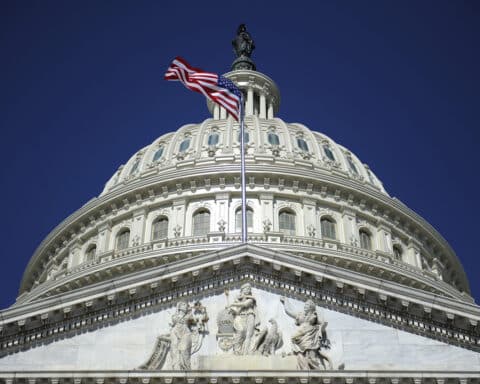Should government seek to expand or contract the boundaries of religious liberty? That is the question raised by two cases the Supreme Court will consider in the weeks immediately ahead.
In one, the Little Sisters of the Poor are asking the court to say once and for all that they don’t have to provide contraceptive coverage for employees in their homes for the aged under the government health program known as the Affordable Care Act.
In the other case, two Los Angeles parochial schools want the court to adopt an expansive interpretation of its “ministerial exception” doctrine allowing religious institutions to hire and fire personnel who qualify as ministers without second-guessing by government.
Although LGBT issues are not directly involved in this dispute, there are obvious implications here for situations in which religious schools have fired teachers for entering into same-sex marriages contrary to the beliefs of the sponsoring church.
Oral arguments in both cases were originally scheduled in April, but they were postponed when the Supreme Court suspended public operations because of the coronavirus pandemic. The court now plans to hear these and 11 other cases via teleconferencing in May. The Little Sisters case will be argued May 6 and the parochial schools case May 11.
Little Sisters’ final appeal
It remains to be seen whether that leaves enough time for the court to produce decisions before its present term closes as scheduled in late June.
If not, decisions will be forthcoming in the term that begins in October. Other cases the court has accepted but not yet considered also will be heard then. That includes a dispute from Montana over publicly funded scholarships for students in religious schools and a case in which Philadelphia forced the local archdiocese out of the foster care field for refusing to place foster children with same-sex couples.
The appeal to the Supreme Court by Little Sisters of the Poor marks the second time the sisters have been there. In 2016, they sought and won exemption from a government order requiring them to include coverage for contraceptives, some believed to be abortifacients, in employee health plans.
The following year, however, Pennsylvania and several other states brought suit against a new rule issued by the Trump administration to shield religious groups against the contraceptive mandate. Last July, the 3rd U.S. Circuit Court of Appeals ruled against the administration and the Little Sisters, who had entered the dispute in support of the rule. Technically, then, the appeal to the Supreme Court is two cases — Little Sisters of the Poor v. Pennsylvania and Trump v. Pennsylvania.
A joint friend of the court brief filed by five religious groups supports the Little Sisters. The five are the U.S. Conference of Catholic Bishops, the Mormon Church, the Southern Baptist Convention’s Ethics & Religious Liberty Commission, the Lutheran Church-Missouri Synod and Samaritan’s Purse, an evangelical humanitarian relief organization headed by Franklin Graham.
The religious groups argue that the rationale of the lower court’s decision in effect undermines the Religious Freedom Restoration Act of 1993 by overriding it “whenever religious freedom is controversial.”
Who are the Church’s ministers?
At the heart of the dispute in the Los Angeles schools case is a 2012 Supreme Court decision generally known as “Hosanna-Tabor” (from Hosanna-Tabor Evangelical Lutheran Church). The Supreme Court there declared a new “ministerial exception” doctrine — that churches have a right to decide personnel matters relating to ministerial employees without government getting involved.
In that earlier case, a teacher in a Lutheran school who had been designated a “called teacher” completed a theology course and was approved for her position by vote of her congregation. She was later fired for “insubordination and disruptive behavior.”
The parochial school teachers in the Los Angeles case had no such titles and credentials, but they did teach religion to fifth-graders and perform other religious duties. Both complained that their schools violated federal job protection law in firing them, and the 9th U.S. Circuit Court of Appeals agreed.
The U.S. bishops’ conference has entered this case, too, as friend of the court, arguing that the circuit court’s ruling violates the Hosanna-Tabor doctrine and “abridges the Catholic Church’s rights — and those of many other religious groups — under both religion clauses” of the Constitution.
Free exercise is violated, the USCCB says, by “effectively penalizing the Catholic Church for exercising its fundamental theological belief in active lay participation in the mission of the Church.” As for no-establishment, it adds, the 9th Circuit erred by taking Lutheran practice as a “one-size-fits-all blueprint” for other churches. The two joined cases are Our Lady of Guadalupe School v. Agnes Morrissey-Berru and St. James School v. Darryl Biel.
Conflict situations like this may seem of minor importance — personnel decisions in two parochial schools don’t weigh heavily in the great scheme of things. But this particular dispute was significant enough to attract the attention of Linda Greenhouse, former Supreme Court reporter of The New York Times, who now writes on legal affairs for that newspaper.
Warning against what she views as a campaign to expand religious liberty in ways she disapproves of, Greenhouse called the Hosanna-Tabor case of 2012 “a first step down the road toward giving religious organizations a carve-out from the laws that apply to the rest of us.” The Los Angeles teachers’ case is another step in that same unacceptable direction, she wrote.
While Greenhouse is only one writer in one newspaper, albeit arguably the nation’s most influential one, her opinion reflects a viewpoint widely held in American secular circles today. Underlying religion-related conflicts now before the Supreme Court or likely to be there soon is an issue that often goes unstated: Is religion just one more special interest like the rest, or is it in a unique category, transcending other categories by reason of its subject matter? Although the rise of secularism makes it controversial now, the American founders who gave religion special protection in the Constitution saw it as indeed unique.
Russell Shaw is a contributing editor for Our Sunday Visitor.

